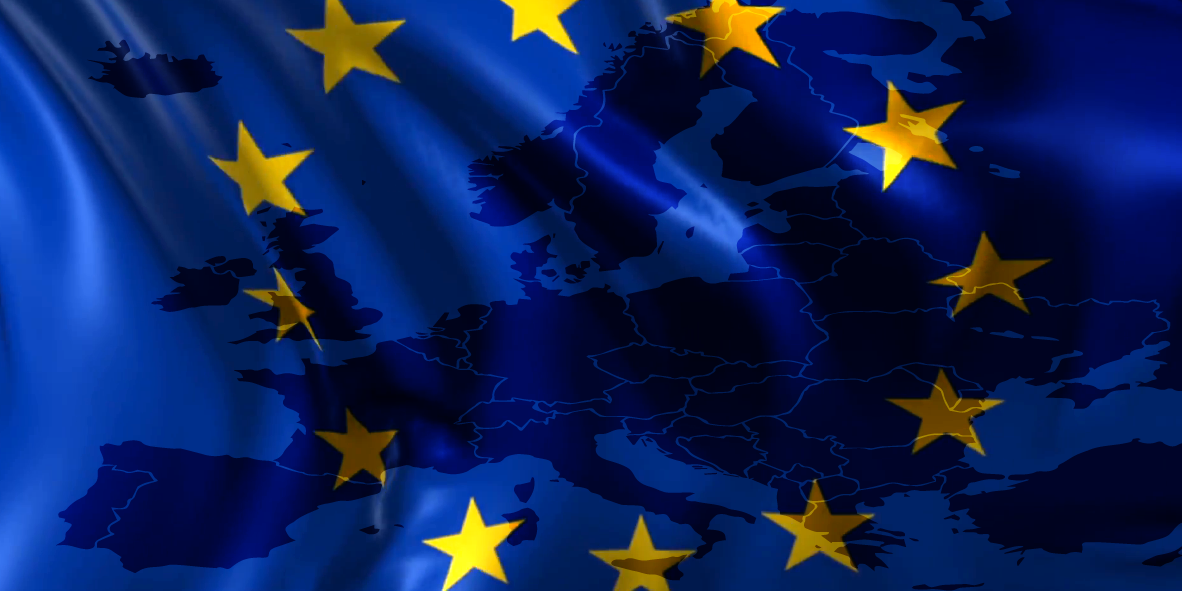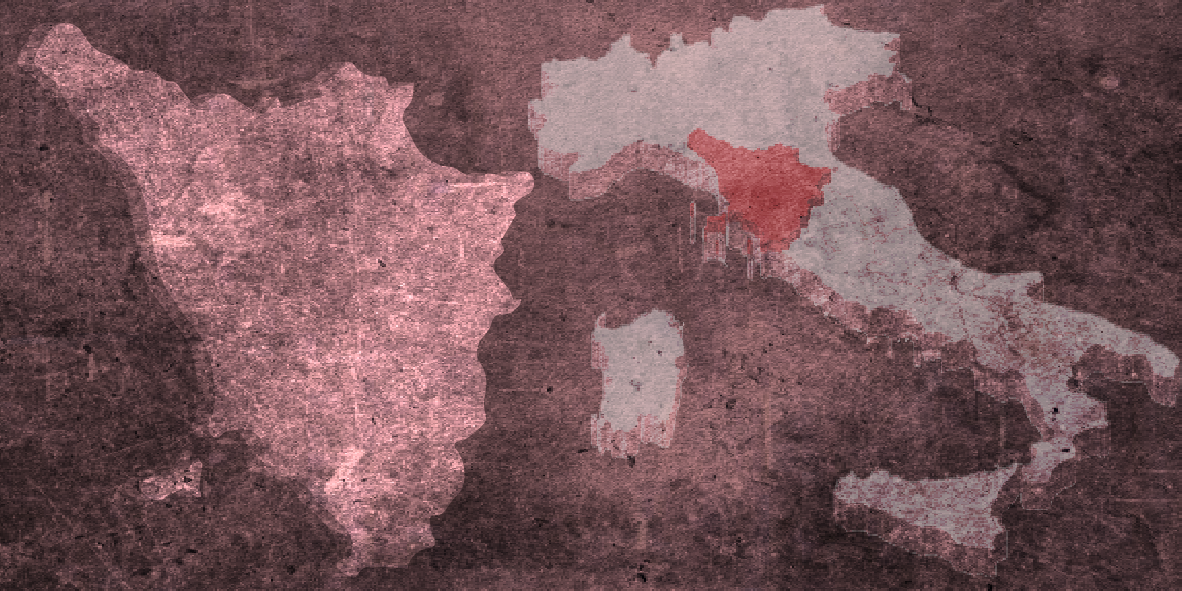
European Commission Calls
 Global Challenges and European Industrial Competitiveness
Global Challenges and European Industrial Competitiveness
HEALTH
Call Identifier: See topic description https://innacta.sharepoint.com/:b:/g/EWKih2duNIlPgdEIMpVtpCgBPjlpv5FHFhKRvpCkIn4L2g?e=geiVLb
Cluster 1 “Health”
These calls will support ambitious, collaborative projects that tackle Europe's most pressing health challenges. With a wide range of topics across key Destinations, there's a wealth of opportunities for researchers, innovators, and stakeholders across the health ecosystem. Whether your work addresses prevention, diagnosis, treatment, or healthcare delivery, there’s a Horizon Europe opportunity for you. Explore the Full List of Cluster 1 – Health Topics: • Staying healthy in a rapidly changing society • Living and working in a health-promoting environment • Tackling diseases and reducing disease burden • Developing and using new tools, technologies and digital solutions for a healthy society • Maintaining an innovative, sustainable, and competitive EU health industry • Ensuring equal access to innovative, sustainable, and high-quality healthcare These topics reflect Europe's commitment to a more resilient, equitable, and digitally empowered healthcare system.
Budget: see details for each topic https://ec.europa.eu/info/funding-tenders/opportunities/docs/2021-2027/horizon/wp-call/2025/wp-4-health_horizon-2025_en.pdf
Deadline: 16-apr-26
Who can apply:
1. Admissibility conditions: described in Annex A and Annex E of the Horizon Europe Work Programme General Annexes.
Proposal page limits and layout: described in Part B of the Application Form available in the Submission System.
2. Eligible countries: described in Annex B of the Work Programme General Annexes.
A number of non-EU/non-Associated Countries that are not automatically eligible for funding have made specific provisions for making funding available for their participants in Horizon Europe projects. See the information in the Horizon Europe Programme Guide.
3. Other eligibility conditions: described in Annex B of the Work Programme General Annexes.
In recognition of the opening of the US National Institutes of Health’s programmes to European researchers, any legal entity established in the United States of America is eligible to receive Union funding.
4. Financial and operational capacity and exclusion: described in Annex C of the Work Programme General Annexes.
These calls will support ambitious, collaborative projects that tackle Europe's most pressing health challenges. With a wide range of topics across key Destinations, there's a wealth of opportunities for researchers, innovators, and stakeholders across the health ecosystem. Whether your work addresses prevention, diagnosis, treatment, or healthcare delivery, there’s a Horizon Europe opportunity for you. Explore the Full List of Cluster 1 – Health Topics: • Staying healthy in a rapidly changing society • Living and working in a health-promoting environment • Tackling diseases and reducing disease burden • Developing and using new tools, technologies and digital solutions for a healthy society • Maintaining an innovative, sustainable, and competitive EU health industry • Ensuring equal access to innovative, sustainable, and high-quality healthcare These topics reflect Europe's commitment to a more resilient, equitable, and digitally empowered healthcare system.
Budget: see details for each topic https://ec.europa.eu/info/funding-tenders/opportunities/docs/2021-2027/horizon/wp-call/2025/wp-4-health_horizon-2025_en.pdf
Deadline: 16-apr-26
Who can apply:
1. Admissibility conditions: described in Annex A and Annex E of the Horizon Europe Work Programme General Annexes.
Proposal page limits and layout: described in Part B of the Application Form available in the Submission System.
2. Eligible countries: described in Annex B of the Work Programme General Annexes.
A number of non-EU/non-Associated Countries that are not automatically eligible for funding have made specific provisions for making funding available for their participants in Horizon Europe projects. See the information in the Horizon Europe Programme Guide.
3. Other eligibility conditions: described in Annex B of the Work Programme General Annexes.
In recognition of the opening of the US National Institutes of Health’s programmes to European researchers, any legal entity established in the United States of America is eligible to receive Union funding.
4. Financial and operational capacity and exclusion: described in Annex C of the Work Programme General Annexes.
MISSION Call Identifier: See topic description https://innacta.sharepoint.com/:b:/g/ETWhPdhtzW5IouRQ1pznwvUB25osEh3JkGyUFYolis5w8Q?e=Zmv1bN Mission Cancer
The goal of the Mission on Cancer is to improve the lives of more than 3 million people by 2030, through prevention, cure and for those affected by cancer including their families, to live longer and better. The four Cancer Mission objectives are: Understand; Prevent what is preventable; Optimise diagnosis and treatment; Support quality of life. Its five transversal priorities are: ensure equitable access in all aforementioned areas, innovation, childhood cancer, personalised medicine and citizen engagement.
Budget: see details for each topic https://ec.europa.eu/info/funding-tenders/opportunities/docs/2021-2027/horizon/wp-call/2025/wp-12-missions_horizon-2025_en.pdf
Deadline: 15 Sep 2026
Who can apply:
1. Admissibility conditions: described in Annex A and Annex E of the Horizon Europe Work Programme General Annexes.
Proposal page limits and layout: described in Part B of the Application Form available in the Submission System.
2. Eligible countries: described in Annex B of the Work Programme General Annexes.
A number of non-EU/non-Associated Countries that are not automatically eligible for funding have made specific provisions for making funding available for their participants in Horizon Europe projects. See the information in the Horizon Europe Programme Guide.
3. Other eligibility conditions: described in Annex B of the Work Programme General Annexes.
4. Financial and operational capacity and exclusion: described in Annex C of the Work Programme General Annexes.
Food, Bioeconomy, Natural Resources, Agriculture and Environment Call Identifier: See topic description https://innacta.sharepoint.com/:b:/g/EZi396FZBItGne9clk7UrtYB8hmJv_ROrl3NQ4dn4aH7hQ?e=tGksj6 Cluster 6 – Food, Bioeconomy, Natural Resources, Agriculture and Environment
The goal of the call under this cluster 6 are focused on : 🌱 Investments in transformative innovations ♻️ Achieving a circular economy and zero pollution 🌿 Restoring European biodiversity These calls are essential for shaping a healthier, greener, and more sustainable Europe.
Budget: see details for each topic https://ec.europa.eu/info/funding-tenders/opportunities/docs/2021-2027/horizon/wp-call/2025/wp-9-food-bioeconomy-natural-resources-agriculture-and-environment_horizon-2025_en.pdf
Deadline: 17 Sep 2026
Who can apply:
1. Admissibility conditions: described in Annex A and Annex E of the Horizon Europe Work Programme General Annexes.
Proposal page limits and layout: described in Part B of the Application Form available in the Submission System.
2. Eligible countries: described in Annex B of the Work Programme General Annexes.
A number of non-EU/non-Associated Countries that are not automatically eligible for funding have made specific provisions for making funding available for their participants in Horizon Europe projects. See the information in the Horizon Europe Programme Guide.
3. Other eligibility conditions: described in Annex B of the Work Programme General Annexes.
4. Financial and operational capacity and exclusion: described in Annex C of the Work Programme General Annexes.
 MSCA
MSCA
Doctoral Network
Call Identifier: HORIZON-MSCA-2025-DN-01-01
MSCA Doctoral Networks 2025
MSCA Doctoral Networks will implement doctoral programmes, by partnerships of universities, research institutions and research infrastructures, businesses including SMEs, and other socio-economic actors from different countries across Europe and beyond.
Proposals for doctoral networks can reflect existing or planned research partnerships among the participating organisations.
The selection procedure for doctoral candidates must be open, transparent and merit-based, in line with the Code of Conduct for the Recruitment of Researchers.
MSCA Doctoral Networks are encouraged to lead to Industrial or Joint Doctorates.
Industrial Doctorates: Through Industrial Doctorates, doctoral candidates will step outside academia and develop skills in industry and business by being jointly supervised by academic and non-academic organisations, both of which can be established in the same EU Member State or Horizon Europe Associated Country.
Joint Doctorates: Joint Doctorates represent a highly integrated type of international, inter-sectoral and multi/interdisciplinary collaboration in doctoral training. They lead to the delivery of joint, double or multiple doctoral degrees recognised in at least two EU Member States or Horizon Europe Associated Countries.
Budget:
Deadline: 25 November 2025
Who can apply:
MSCA Doctoral Networks will implement doctoral programmes, by partnerships of universities, research institutions and research infrastructures, businesses including SMEs, and other socio-economic actors from different countries across Europe and beyond.
Proposals for doctoral networks can reflect existing or planned research partnerships among the participating organisations.
The selection procedure for doctoral candidates must be open, transparent and merit-based, in line with the Code of Conduct for the Recruitment of Researchers.
MSCA Doctoral Networks are encouraged to lead to Industrial or Joint Doctorates.
Industrial Doctorates: Through Industrial Doctorates, doctoral candidates will step outside academia and develop skills in industry and business by being jointly supervised by academic and non-academic organisations, both of which can be established in the same EU Member State or Horizon Europe Associated Country.
Joint Doctorates: Joint Doctorates represent a highly integrated type of international, inter-sectoral and multi/interdisciplinary collaboration in doctoral training. They lead to the delivery of joint, double or multiple doctoral degrees recognised in at least two EU Member States or Horizon Europe Associated Countries.
Budget:
Deadline: 25 November 2025
Who can apply:
 European Research Council
European Research Council
ERC Consolidator
Call Identifier: ERC-2026-COG
ERC CONSOLIDATOR GRANTS
The scheme supports excellent researchers consolidating their scientific independence, who earned their PhD between 2014 and 2018 and can demonstrate the ability to lead a research team. Grants provide up to €2 million for 5 years, with up to €1–2 million extra available for major costs or relocation to Europe/associated countries.
Budget: up to €2 million for 5 years, with up to €1–2 million extra available for major costs or relocation to Europe/associated countries.
Deadline: 13 January 2026
Who can apply:
The scheme supports excellent researchers consolidating their scientific independence, who earned their PhD between 2014 and 2018 and can demonstrate the ability to lead a research team. Grants provide up to €2 million for 5 years, with up to €1–2 million extra available for major costs or relocation to Europe/associated countries.
Budget: up to €2 million for 5 years, with up to €1–2 million extra available for major costs or relocation to Europe/associated countries.
Deadline: 13 January 2026
Who can apply:
 Innovative Europe
Innovative Europe
Innovative Europe
Call Identifier: EIC Pathfinder
EIC Pathfinder Challenges
Scope: to develop the scientific basis to underpin breakthrough technologies. Support for the earliest stages of scientific, technological or deep-tech research and development. Pathfinder projects aim to build on new, cutting-edge directions in science and technology to disrupt a field and a market or create new opportunities by realising innovative technological solutions. Support for coherent portfolios of projects within predefined thematic areas with the aim of achieving specific objectives for each Challenge.
EIC Pathfinder Challenges 2025:
1. Biotech for Climate Resilient Crops and Plant-Based Biomanufacturing: To enhance adaptation pathways for the production of climate-resilient crops and develop alternative pathways to produce high value ingredients in plants by increasing nutrient profile of crops based on plant native and/or non-native ingredients.
2. Generative-AI based Agents to Revolutionize Medical Diagnosis and Treatment of Cancer: To create interactive GenAI autonomous agents and/or a combination of them that provide clinicians with a holistic end to end perspective of patient care.
3. Towards autonomous robot collectives delivering collaborative tasks in dynamic unstructured construction environments: Enabling autonomous robot collectives to collaboratively perform complex construction tasks in dynamic, unstructured environments. Advancing robotic collaboration and electrification to revolutionize on-site building processes and enhance efficiency, safety, and sustainability.
4. Waste-to-value devices: Circular production of renewable fuels, chemicals and materials: Developing of next generation technologies that turn today’s problematic waste streams into essential building blocks of a future circular economy.
You should apply if you have a potential cutting-edge project that would contribute to the specific objectives of the respective Challenge. Specifically, your proposed project must aim to deliver by its end the expected outcomes defined in the respective Challenge. In general, the starting point of a proposal answering to a Pathfinder Challenge is early TRL (e.g., 2) to up to proof of concept or validation in the lab (e.g., TRL 3 or 4). Project results should also include top-level scientific publications, adequate formal protection of the generated intellectual property (IP) as well as an assessment of relevant aspects related to regulation, certification and standardisation.
Budget: The total indicative budget for this call is EUR 120 million which is expected to be allocated in approximately equal shares across the Challenges.
For this call, the EIC considers proposals with an EU contribution of up to EUR 4 million as appropria
Deadline: 29 October 2025
Who can apply: Support for collaborative or individual research and innovation from consortia or from single legal entities established in a Member State or an Associated Country (unless stated otherwise in the specific Challenge chapter).
In case of a consortium your proposal must be submitted by the coordinator on behalf of the consortium. Consortia of two entities must be comprised of independent legal entities from two different Member States or Associated Countries. Consortia of three or more entities must include as beneficiaries at least three legal entities, independent from each other and each established in a different country as follows:
• at least one legal entity established in a Member State; and
• at least two other independent legal entities, each established in different Member States or Associated Countries.
The legal entities may for example be universities, research organisations, SMEs, startups, natural persons. In the case of single beneficiary projects, mid-caps and larger companies will not be permitted.
Scope: to develop the scientific basis to underpin breakthrough technologies. Support for the earliest stages of scientific, technological or deep-tech research and development. Pathfinder projects aim to build on new, cutting-edge directions in science and technology to disrupt a field and a market or create new opportunities by realising innovative technological solutions. Support for coherent portfolios of projects within predefined thematic areas with the aim of achieving specific objectives for each Challenge.
EIC Pathfinder Challenges 2025:
1. Biotech for Climate Resilient Crops and Plant-Based Biomanufacturing: To enhance adaptation pathways for the production of climate-resilient crops and develop alternative pathways to produce high value ingredients in plants by increasing nutrient profile of crops based on plant native and/or non-native ingredients.
2. Generative-AI based Agents to Revolutionize Medical Diagnosis and Treatment of Cancer: To create interactive GenAI autonomous agents and/or a combination of them that provide clinicians with a holistic end to end perspective of patient care.
3. Towards autonomous robot collectives delivering collaborative tasks in dynamic unstructured construction environments: Enabling autonomous robot collectives to collaboratively perform complex construction tasks in dynamic, unstructured environments. Advancing robotic collaboration and electrification to revolutionize on-site building processes and enhance efficiency, safety, and sustainability.
4. Waste-to-value devices: Circular production of renewable fuels, chemicals and materials: Developing of next generation technologies that turn today’s problematic waste streams into essential building blocks of a future circular economy.
You should apply if you have a potential cutting-edge project that would contribute to the specific objectives of the respective Challenge. Specifically, your proposed project must aim to deliver by its end the expected outcomes defined in the respective Challenge. In general, the starting point of a proposal answering to a Pathfinder Challenge is early TRL (e.g., 2) to up to proof of concept or validation in the lab (e.g., TRL 3 or 4). Project results should also include top-level scientific publications, adequate formal protection of the generated intellectual property (IP) as well as an assessment of relevant aspects related to regulation, certification and standardisation.
Budget: The total indicative budget for this call is EUR 120 million which is expected to be allocated in approximately equal shares across the Challenges.
For this call, the EIC considers proposals with an EU contribution of up to EUR 4 million as appropria
Deadline: 29 October 2025
Who can apply: Support for collaborative or individual research and innovation from consortia or from single legal entities established in a Member State or an Associated Country (unless stated otherwise in the specific Challenge chapter).
In case of a consortium your proposal must be submitted by the coordinator on behalf of the consortium. Consortia of two entities must be comprised of independent legal entities from two different Member States or Associated Countries. Consortia of three or more entities must include as beneficiaries at least three legal entities, independent from each other and each established in a different country as follows:
• at least one legal entity established in a Member State; and
• at least two other independent legal entities, each established in different Member States or Associated Countries.
The legal entities may for example be universities, research organisations, SMEs, startups, natural persons. In the case of single beneficiary projects, mid-caps and larger companies will not be permitted.

Other Calls

National Calls